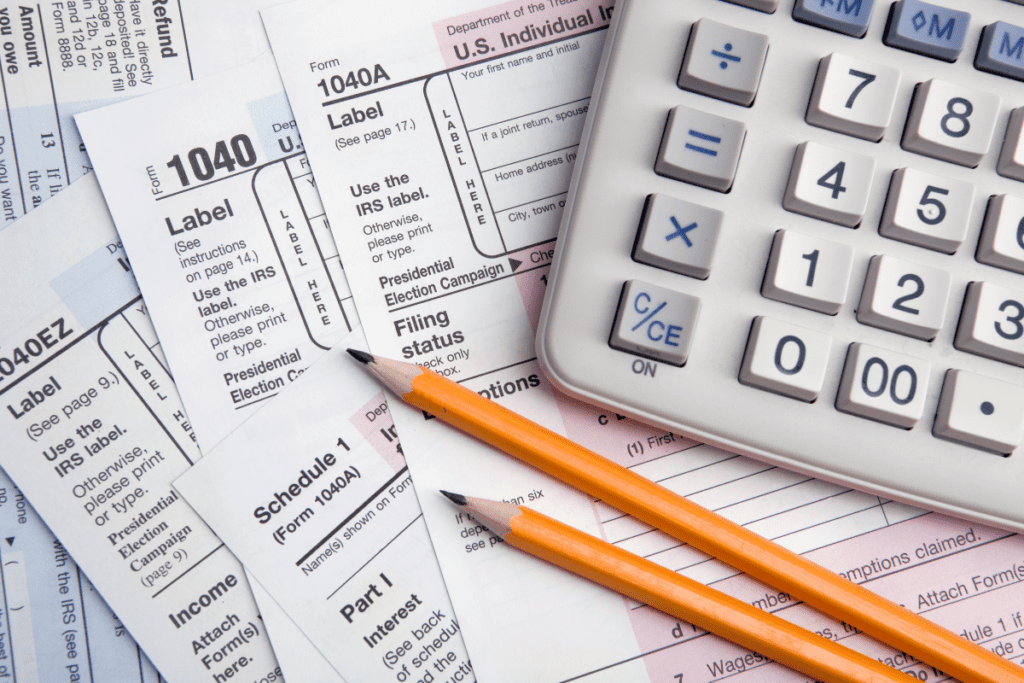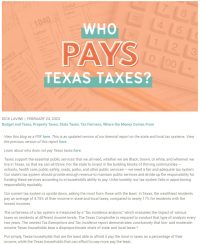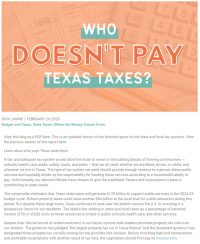
Tax Fairness
The Texas tax system is unfair because those who can afford to pay higher taxes often don’t do so, leaving lower-income households to make up for the difference. Without a fair and adequate tax system, the state’s ability to invest in schools, public safety, roads, and other public services will continually become more difficult.

Background
One way to judge the fairness of a tax system is to compare the percentage of income different households pay in taxes. A study by the State Comptroller ranks Texas households according to income, then combines them into five groups (called “quintiles”), each of which contains the same number of households. In a state with a fair tax system, the share of taxes paid by each income group matches the share of income received by the households in that group. However, in Texas, the households with the lowest incomes pay the highest percentage of their income in taxes and vice versa. In other words, those who can least afford it pay the most.
The sales tax, which accounts for over half of all state tax revenue, is one of the most unfair taxes. The sales tax burdens low-income families more than higher-income families because it is based on how much each family spends. Low-income families typically spend three-fourths of their income on goods subject to the sales tax, middle-class families spend less than half of their income on items subject to sales tax, and the richest families spend one-fourth or less of their income on sales-taxable items.
Exemptions for groceries, residential utilities (gas, electric, and water), and prescription and over-the-counter medicines reduce the unfairness of the sales tax somewhat. Taxing business and professional services primarily used by higher-income families, but not currently taxed, could also reduce the regressive nature of the sales tax.
Our Staff

Dick Lavine
Senior Fiscal Analyst, Invest in Texas

Shannon Halbrook
Senior Fiscal Analyst, Invest in Texas

Samuel Cervantes
Analyst, Data & Policy




